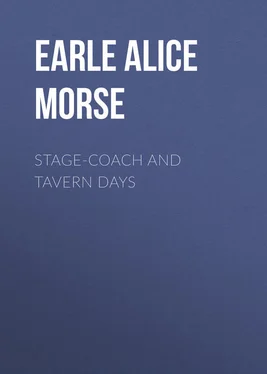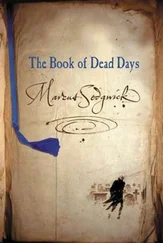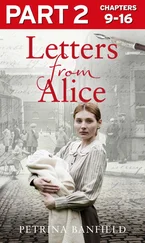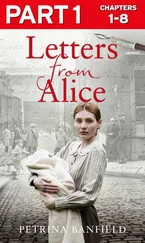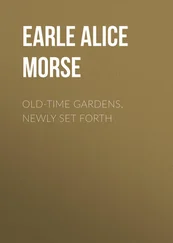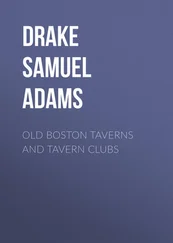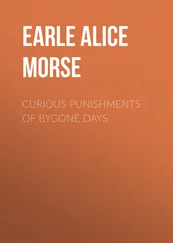Alice Earle - Stage-coach and Tavern Days
Здесь есть возможность читать онлайн «Alice Earle - Stage-coach and Tavern Days» — ознакомительный отрывок электронной книги совершенно бесплатно, а после прочтения отрывка купить полную версию. В некоторых случаях можно слушать аудио, скачать через торрент в формате fb2 и присутствует краткое содержание. Жанр: foreign_antique, foreign_prose, на английском языке. Описание произведения, (предисловие) а так же отзывы посетителей доступны на портале библиотеки ЛибКат.
- Название:Stage-coach and Tavern Days
- Автор:
- Жанр:
- Год:неизвестен
- ISBN:нет данных
- Рейтинг книги:4 / 5. Голосов: 1
-
Избранное:Добавить в избранное
- Отзывы:
-
Ваша оценка:
- 80
- 1
- 2
- 3
- 4
- 5
Stage-coach and Tavern Days: краткое содержание, описание и аннотация
Предлагаем к чтению аннотацию, описание, краткое содержание или предисловие (зависит от того, что написал сам автор книги «Stage-coach and Tavern Days»). Если вы не нашли необходимую информацию о книге — напишите в комментариях, мы постараемся отыскать её.
Stage-coach and Tavern Days — читать онлайн ознакомительный отрывок
Ниже представлен текст книги, разбитый по страницам. Система сохранения места последней прочитанной страницы, позволяет с удобством читать онлайн бесплатно книгу «Stage-coach and Tavern Days», без необходимости каждый раз заново искать на чём Вы остановились. Поставьте закладку, и сможете в любой момент перейти на страницу, на которой закончили чтение.
Интервал:
Закладка:
The study of tavern history often brings to light much evidence of sad domestic changes. Many a cherished and beautiful home, rich in annals of family prosperity and private hospitality, ended its days as a tavern. Many a stately building of historic note was turned into an inn in its later career. The Indian Queen in Philadelphia had been at various times the home of Sir Richard Penn, the headquarters of General Howe and of General Benedict, the home of Robert Morris and Presidents Washington and Adams. Benjamin Franklin’s home became a tavern; so also did the splendid Bingham mansion, which was built in 1790 by the richest man of his day. Governor Lloyd’s house became the Cross Trees Inn. Boston mansions had the same fate. That historic building – the Province House – served its term as a tavern.
Sometimes an old-time tavern had a special petty charm of its own, some peculiarity of furnishing or fare. One of these was the Fountain Inn of Medford, Massachusetts. It was built in 1725 and soon became vastly frequented. No town could afford a better site for inns than Medford. All the land travel to Boston from Maine, eastern New Hampshire, and northeastern Massachusetts poured along the main road through Medford, which was just distant enough from Boston centre to insure the halting and patronage of every passer-by. The Fountain Inn bustled with constant customers, and I can well believe that all wanderers gladly stopped to board and bait at this hospitable tavern. For I know nothing more attractive, “under the notion of an inn,” than this old tavern must have been, especially through the long summer months. It was a road house and stood close to the country road, so was never quiet; yet it afforded nevertheless a charming and restful retreat for weary and heated wanderers. For on either side of the front dooryard grew vast low-spreading trees, and in their heavy branches platforms were built and little bridges connected tree to tree, and both to the house. Perhaps the happy memories of hours and days of my childhood spent in a like tree nest built in an old apple tree, endow these tree rooms of the Fountain Inn with charms which cannot be equally endorsed and appreciated by all who read of them; but to me they form an ideal traveller’s joy. To sit there through the long afternoon or in the early twilight, cool and half remote among the tree branches, drinking a dish of tea; watching horsemen and cartmen and sturdy pedestrians come and go, and the dashing mail-coach rattle up, a flash of color and noise and life, and pour out its motley passengers, and speedily roll away with renewed patrons and splendor – why, it was like a scene in a light opera.
The tree abodes and the bridges fell slowly in pieces, and one great tree died; but its companion lived till 1879, when it, too, was cut down and the bald old commonplace building crowded on the dusty street stood bare and ugly, without a vestige or suggestion of past glory around it. Now that, too, is gone, and only the picture on the opposite page, of the tavern in its dying poverty, remains to show what was once the scene of so much bustle and good cheer.
The State House Inn of Philadelphia was built in 1693, and was long known as Clark’s Inn. It was a poor little building which stood in a yard, not green with grass, but white with oysters and clam shells. Its proximity to the State House gave it the custom of the members and hangers-on of the colonial assemblies. William Penn often smoked his pipe on its porch. Clark had a sign-board, the Coach and Horses, and he had something else which was as common perhaps in Philadelphia as tavern sign-boards, namely, turnspit dogs – little patient creatures, long-bodied and crook-legged, whose lives were spent in the exquisite tantalization of helping to cook the meat, whose appetizing odors of roasting they sniffed for hours without any realization of tasting at the end of their labors.
Dr. Caius, founder of the college at Cambridge, England, that bears his name, is the earliest English writer upon the dog, and he tells thus of turnspits: “Certain dogs in kitchen service excellent. When meat is to be roasted they go into a wheel, where, turning about with the weight of their bodies they so diligently look to their business that no drudge or scullion can do the feat more cunningly.” The Philadelphia landlord says in his advertisement of dogs for sale, “No clock or jack so cunningly.” The summary and inhuman mode of teaching these turnspits their humble duties is described in a book of anecdotes published at Newcastle-on-Tyne in 1809. The dog was put in the wheel. A burning coal was placed with him. If he stopped, his legs were burned. That was all. He soon learned his lesson. It was hard work, for often the great piece of beef was twice the weight of the dog, and took at least three long hours’ roasting. I am glad to know that these hard-working turn-broches usually grew shrewd with age; learned to vanish at the approach of the cook or the appearance of the wheel. At one old-time tavern in New York little brown Jesse listened daily at the kitchen doorstep while the orders were detailed to the kitchen maids, and he could never be found till nightfall on roast-meat days; nay, more, he, as was the custom of dogs in that day, went with his mistress to meeting and lay at her feet in the pew. And when the parson one Sunday chose to read and expound from the first chapter of Ezekiel, Jesse fled with silent step and slunken tail and drooping ears at the unpleasant verse, “And when the living creatures went, the wheels went by them; and when the living creatures were lifted up from the earth, the wheels were lifted up.” Naturally Jesse never suspected that these Biblical wheels were only parts of innocent allegorical chariots, but deemed them instead a very untimely and unkind reminder on a day of rest of his own hated turnspit wheel.
One of the sweetest of all tales of an inn is that begun by Professor Reichel and ended by Mr. John W. Jordan of the Historical Society of Pennsylvania; it is called “A Red Rose from the Olden Time.” It is a story of Der neue Gasthof or “The Tavern behind Nazareth,” as it was modestly called, the tavern of the Moravian settlement at Bethlehem, Pennsylvania. It was a substantial building, “quartered, brick-nogged, and snugly weatherboarded, with a yard looking North and a Garden looking South.” In 1754, under the regency of its first ruler, one Schaub, the cooper, and Divert Mary, his faithful wife, it bore a sign-board charged with a full-blown rose, and was ever after known as the Rose. This was not because the walls were coated with Spanish red; this rose bloomed with a life derived from sentiment and history, for it was built on land released by William Penn on an annual payment as rental of ONE RED ROSE.
There is something most restful and beautiful in the story of this old inn. Perhaps part of the hidden charm comes from the Biblical names of the towns. For, without our direct consciousness, there is ever something impressive in Biblical association; there is a magical power in Biblical comparison, a tenderness in the use of Biblical words and terms which we feel without actively noting. So this Red Rose of Nazareth seems built on the road to Paradise. An inventory was made of the homely contents of the Rose in 1765, when a new landlord entered therein; and they smack of the world, the flesh, and the devil. Ample store was there of rum, both of New England and the West Indies, of Lisbon wine, of cider and madigolum, which may have been metheglin. Punch-bowls, tumblers, decanters, funnels, black bottles, and nutmeg-graters and nutmegs also. Feather-beds and pillows were there in abundance, and blankets and coverlets, much pewter and little china, ample kitchen supplies of all sorts. In war and peace its record was of interest, and its solid walls stood still colored a deep red till our own day.
Читать дальшеИнтервал:
Закладка:
Похожие книги на «Stage-coach and Tavern Days»
Представляем Вашему вниманию похожие книги на «Stage-coach and Tavern Days» списком для выбора. Мы отобрали схожую по названию и смыслу литературу в надежде предоставить читателям больше вариантов отыскать новые, интересные, ещё непрочитанные произведения.
Обсуждение, отзывы о книге «Stage-coach and Tavern Days» и просто собственные мнения читателей. Оставьте ваши комментарии, напишите, что Вы думаете о произведении, его смысле или главных героях. Укажите что конкретно понравилось, а что нет, и почему Вы так считаете.
